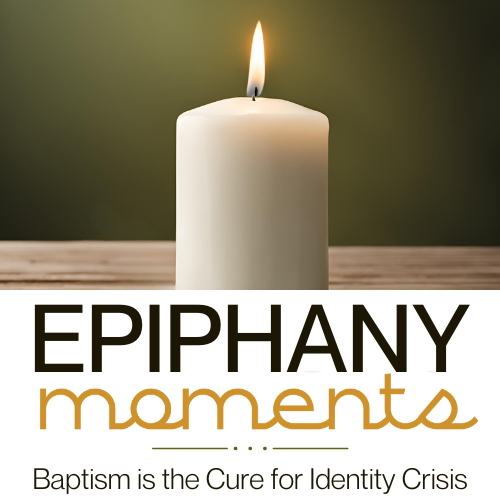Watch the livestream beginning at 10:30 a.m. on Sunday. After the livestream is finished, the video will be available to watch at any time.
Gospel: Matthew 21:33-43 (NIV)
Music:
- Hymn CW 920 “Christ Is made the Sure Foundation”
- Hymn CW 927 “Rejoice, My Heart, Be Glad and Sing”
- Hymn CW 862 “Lord, Keep Us Steadfast in Your Word”
- Hymn CW 676 “Take and Eat”
- Hymn CW 928 “May the Grace of Christ Our Savior”
Yr. A, Pentecost 19 October 8, 2023
Matthew 21:33-43 Pastor Ryan Wolfe
“A violent vineyard tells a cautionary tale.”
One of the things about the Bible I find interesting is that because it was written over such a long period of time (1500 years!) the writers of the later books were able to study the first books much like we do. In Genesis 15 God talks about Abraham’s faith and says he “credits it to him as righteousness.” Well, when Paul writes to the Romans about being saved through faith and not works, he quotes that verse. Paul says, “The words “it was credited to him” were written not for him alone, but also for us.” (Romans 4:23-24) I’m convinced that much of the history of the Old Testament is recorded for us to show us how God works with sinners. That means the promises are there to give us hope, and the punishments are there to give us warning. Today we hear another parable of Jesus, this one given the same Tuesday of Holy Week as the one we heard last week. Jesus uses the history of Israel to give a clear warning to the Pharisees and the crowd gathered around him. He describes a violent vineyard full of wicked people doing wicked things, each act worse than the one before. This parable of Jesus is a cautionary tale, that we might learn from them. To turn from our sin and repent.
Jesus begins the parable: “There was a man who planted a vineyard. He put a wall around it, dug a winepress in it and built a watchtower. Then he rented the vineyard to some farmers and moved to another place.” This landowner spared no expense. He planted it, gave it protection, and gave it everything it needed to make it useful. And then he rented it out. It’s really not all that different from landowners who rent out farmland today. It was even more common back then. The tenant farmers were provided with jobs and the owner of the land received a share of the crop.
But in Jesus’ story the agreement between owner and tenant goes horribly wrong. “When the harvest time approached, he sent his servants to the tenants to collect his fruit. The tenants seized his servants; they beat one, killed another, and stoned a third.” So much for the contract they had agreed upon. But the owner is patient, recklessly so, and sends more servants, even more than the last. The tenants do the same. The tenants despised the owner. They ignored his rightful claim. Disregarded his honest word. And made it abundantly clear by their shameful and sinful actions.
Jesus was speaking here to people descended from Abraham. And it’s not hard to place this parable on them. The kids in Sunday school, Sunday JAM, today will hear about God’s promises of blessing to Abraham. Out of all the nations, God blessed them with promise. He brought them out of Egypt, into the promised land, and to the blessed time of King David and King Solomon. But what did they do to the servants he sent? The prophets and faithful leaders? They beat some, killed others, and stoned even more. They rejected God’s truth and worshiped idols of stone. No, this parable isn’t hard to apply to them.
But it’s not just about them. Have you figured out how this applies to us yet? God has given us a full and complete vineyard too, hasn’t he? He planted blessings all around us, giving us life and calling us to faith. He pours out good things on us. Showers us with time and talents. He protects us like a wall and watchtower as he delivers us from evil. And he sends pastors and Christian friends and family as his servants with calls to serve him.
But what do we do with it? Thankfully, Salem hasn’t beaten or stoned or killed a pastor yet, as far as I can see in our history books. But we don’t always welcome God’s message either do we? And we don’t always give God the fruit of what he’s given to us. As Jesus teaches in the parable, we live in God’s world and he has the right to expect certain things. We are to love him more than anything else. 1st commandment! Yet we sure find ways to spend time and money on other things first. He calls us out of this world into his family. Yet we are quick to hold onto the world’s things and so slow to take up our place in his Church’s mission. Brothers and sisters, hear this cautionary tale of a violent vineyard because Jesus is talking to us. Let’s listen to the master who blesses us, and hear him when he calls.
Our theme today is about God’s patience, and in Jesus’ parable even after the shameful treatment of the servants, the owner of the vineyard showed just that. Instead of destroying them right away he sends one more representative. Verse 37, “Last of all, he sent his son to them. ‘They will respect my son,’ he said.” But they didn’t. “When the tenants saw the son, they said to each other, ‘This is the heir. Come, let’s kill him and take his inheritance.’ So they took him and threw him out of the vineyard and killed him.” What ridiculous logic. What a stupid decision. The arrogance! To think that killing the owner’s heir would put them in line for the inheritance.
Jesus breaks into his story and asks the crowd, “‘When the owner of the vineyard comes, what will he do to those tenants?’” They respond, “‘He will bring those wretches to a wretched end, and he will rent the vineyard to other tenants, who will give him his share of the crop at harvest time.” Well, duh.
History is sadly filled with people who rejected God’s Son and God’s love. You heard it in the reading from Isaiah. God rescued his people from Egypt. He saved them, and then they rejected him. You know the history that followed the telling of this parable. The Pharisees rejected it and rejected him. Oh, they knew he was talking about them, but that didn’t matter. Their minds were dull to the truth. Their hearts were hardened to the Gospel.
After telling this parable Jesus quoted Psalm 118. Jesus says, “The stone the builders rejected has become the cornerstone; the Lord has done this, and it is marvelous in our eyes.” Luke’s recording of this account adds something else:
“Everyone who falls on that stone will be broken to pieces, but he on whom it falls will be crushed.” The original says, the one on whom it falls will be “ground to powder.” We recognize Jesus as the cornerstone of the Christian faith. The most important piece. The one on which every other part of our faith, our church, our hope, is built. For us he is a stone to build on. But there’s a slightly different picture at play here too. Every person that hears about Jesus is either broken or crushed to powder. Neither one sounds pleasant, and neither one is. When we come up against Jesus we realize how far short we fall of who we need to be. He is perfect and we are not. He is holy and we are anything but. Our pride and confidence are broken in pieces in the face of God’s holy and perfect law. But God breaks us o four pride so that he can give us salvation in the only place it can be found The cross where sins are paid for and hope restored. Empty of ourselves, we are filled with Christ. Built on the same rock that crushed our sinful thoughts of self-righteousness. Built on that rock, our place in heaven is stable and secure.
But that same solid rock in which we trust crushes the sinner who rejects God’s Son. It’s not a part of our text, but Matthew tells us the aftermath of these parables. “When the chief priests and the Pharisees heard Jesus’ parables, they knew he was talking about them. They looked for a way to arrest him, but they were afraid of the crowd because the people held that he was a prophet. ”
Brothers and sisters, now that we stand at the end of these stories of Jesus, pray that God turns us away from our natural pride and sin. Six centuries before Jesus’ birth, God spoke through the prophet Jeremiah writing, “This is what the LORD says: ’Cursed is the one who trusts in man, who depends on flesh for his strength and whose heart turns away from the LORD,’” That curse fell on the Pharisees and chief priests. It falls on every sinner who thinks they’re okay or imagines that their good works are helping them toward heaven. May that curse never fall on us.
Thank God for the messengers he sends and the message they bring. The law that crushes us and the gospel that builds us up again in Christ. Listen! Hear God’s word, every week here in worship and at home in devotion. Let us turn in faith away from ourselves and give God the glory he deserves. He builds. He plants. He saves. He protects. Receive him with joy when he calls and respond to him with fruits of faithfulness and service. He is the master, patient and loving. May we rejoice in his house to serve and praise him always. Amen.



